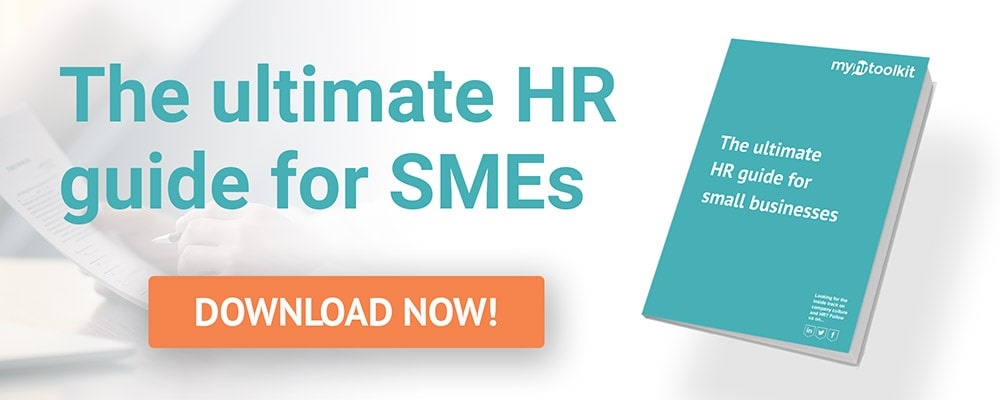How can employers address the cost of living crisis for their employees while also considering their own financial pressures? We've asked the HR and employment law experts to weigh in on how to support employees while balancing internal financial concerns.
There is an emerging cost of living crisis, due to a combination of several factors, that will inevitably have an impact on your employees' finances and wellbeing in 2022. According to an article from The Week:
"Annual CPI inflation rose to 5.4% in December – a 30-year high – and it’s predicted to hit 7% in the spring. Consumers are having to pay more for essentials such as food, clothing and transport, and the squeeze will get worse in April when the energy price cap is renewed, pushing fuel bills up to a predicted £2,000 a year per household.”
Pair this with an increase in remote working and fuel usage at home (or indeed rising travel costs to and from the workplace) and these rising costs are bound to hit people hard. So, what can employers do to help employees with the emerging cost of living crisis while dealing with their own myriad of financial pressures?
We’ve asked employment solicitors and HR consultants to give their tips on how employers can reach out to and support employees as costs rise, while also considering their own financial pressures. Here is what they had to say:
"Providing flexibility around this is important"
Gemma Dale, HR Consultant at The Work Consultancy
 “Employers may not be able to match pay rises with inflation, but there are some things that they can do. First of all, recognise that employees may face different impacts from the issue, and this may in turn influence what they need from their employer. Whilst many employees have expressed a strong desire towards homeworking since the pandemic, some may be concerned about rising utility costs, so may prefer to be in the office more often. Others may benefit from remote and hybrid working as this reduces their transport costs. Providing flexibility around this is important.”
“Employers may not be able to match pay rises with inflation, but there are some things that they can do. First of all, recognise that employees may face different impacts from the issue, and this may in turn influence what they need from their employer. Whilst many employees have expressed a strong desire towards homeworking since the pandemic, some may be concerned about rising utility costs, so may prefer to be in the office more often. Others may benefit from remote and hybrid working as this reduces their transport costs. Providing flexibility around this is important.”
"Make clear that there is always the opportunity to talk"
Charlotte Geesin, Legal Director at Howarths
 “For me, the best thing that an employer can do to balance off all aspects of this brewing problem is simply to keep an open door. If employers can be aware that the people they work with may be experiencing financial difficulties, with this latest blow in a long line of blows, and make clear that there is always the opportunity to talk, this can go a very long way without incurring any immediate costs.
“For me, the best thing that an employer can do to balance off all aspects of this brewing problem is simply to keep an open door. If employers can be aware that the people they work with may be experiencing financial difficulties, with this latest blow in a long line of blows, and make clear that there is always the opportunity to talk, this can go a very long way without incurring any immediate costs.
“Financial and personal concerns can be difficult for employees to talk about but knowing that they have the option to speak to their employer if needed can, in some cases, prove to be a lifeline. A problem shared is a problem halved. In some situations, further support might need to be offered/signposted e.g., debt advice or occupational health for those whose mental health is negatively affected by these changes, but an employer isn't expected to have all of the answers.”
"Companies should start with revisiting their employee costs"
Archita Misra (MCIPD), HR Generalist
 “With rising living costs, society as a whole is impacted. The question here is how to deal with rising costs both for business sustainability and providing support to employees. I think companies should start with revisiting their employee costs and looking at how much bandwidth they have in stretching costs to fit business purposes and include more employee wellbeing measures. Employers also should engage in communication with employees, maybe in the form of an anonymous survey within the organisation so that employees can voice their opinion on this matter.”
“With rising living costs, society as a whole is impacted. The question here is how to deal with rising costs both for business sustainability and providing support to employees. I think companies should start with revisiting their employee costs and looking at how much bandwidth they have in stretching costs to fit business purposes and include more employee wellbeing measures. Employers also should engage in communication with employees, maybe in the form of an anonymous survey within the organisation so that employees can voice their opinion on this matter.”
"Employers can also see if they can relieve some of the burden"
Gemma Dale, HR Consultant at The Work Consultancy
 “Employers can also see if they can relieve some of the burden from employees in different ways. Reminding employees about (or introducing) discount platforms that can help them save money on consumer goods or at the supermarket are simple ways to provide support. For those experiencing serious issues or financial anxieties, reminding employees about any EAP provision, many of which include financial or debt advice, can also help.”
“Employers can also see if they can relieve some of the burden from employees in different ways. Reminding employees about (or introducing) discount platforms that can help them save money on consumer goods or at the supermarket are simple ways to provide support. For those experiencing serious issues or financial anxieties, reminding employees about any EAP provision, many of which include financial or debt advice, can also help.”
"What benefits would employees like to see?"
Kate Marchant (ACIPD), HR Consultant at Running HR Ltd.
 “This is difficult one. I think the more employers can offer benefits such as cash plans, discount platforms and EAP with access to financial counselling, the better. But perhaps the best approach is for employers to ask their employees how they can best support them through this crisis (whilst recognising they don’t have a bottomless purse.) Which benefits would they like to see? Can they trade these in with any that are perhaps outdated or not utilised very much?”
“This is difficult one. I think the more employers can offer benefits such as cash plans, discount platforms and EAP with access to financial counselling, the better. But perhaps the best approach is for employers to ask their employees how they can best support them through this crisis (whilst recognising they don’t have a bottomless purse.) Which benefits would they like to see? Can they trade these in with any that are perhaps outdated or not utilised very much?”
Read more from the myhrtoolkit blog
Types of HR costs and how to reduce them

Written by Camille Brouard
Camille is a Senior Marketing Executive for myhrtoolkit who writes on topics including HR technology, workplace culture, leave management, diversity, and mental health at work.


 Holiday Planner
Holiday Planner Absence Management
Absence Management Performance Management
Performance Management Staff Management
Staff Management Document Management
Document Management Reporting
Reporting Health and Safety Management
Health and Safety Management Task Management
Task Management Security Centre
Security Centre Self Service
Self Service Mobile
Mobile




